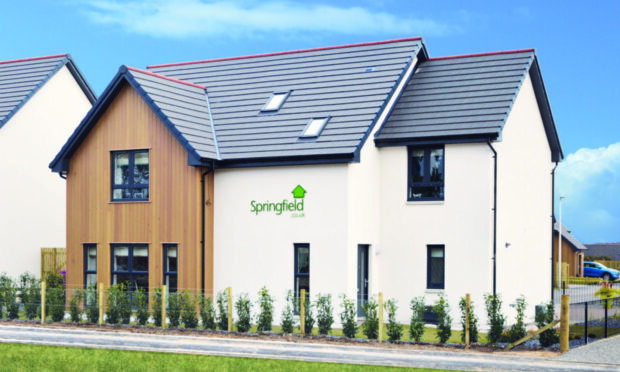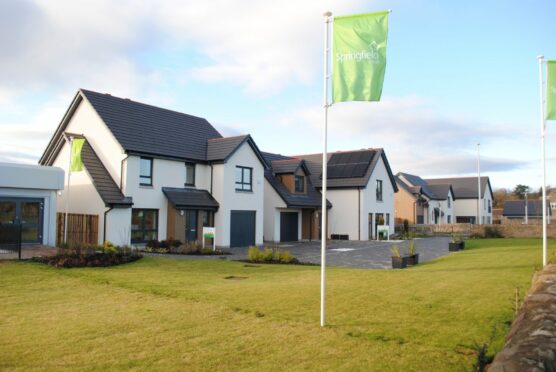Shares in Moray-based housebuilder Springfield Properties have taken a pasting, plummeting more than 17% by mid-morning, after it warned higher interest rates and economic uncertainty is hitting demand for private homes.
Springfield said it is taking a cautious approach to expectations of future sales rates.
Private house price growth is “no longer anticipated in the short term, rendering the increase in build costs more difficult to mitigate,” the company added.
Affordable homes and rented sector woe
The housebuilder also said it will continue to hold off from entering into long-term fixed price contracts for affordable homes.
It is awaiting the outcome of a Scottish Government review of its investment “benchmark” for the sector.
In addition, Springfield said its plans to deliver homes for the private rented sector are “unlikely to come forward in the next couple of years following the Scottish Government’s introduction of a temporary rent freeze”.
The negative impact on Springfield’s shares following the trading update earlier today wiped more than £18.5 million off the Elgin-headquartered group‘s market value. The stock closed down just over 11% at 80p.
Results covering the six months to November 30 are expected to be published in February 2023.
The company – led by chief executive Innes Smith – warned of a likely fall in full-year profits.
But it also said it remains “on track for good revenue growth” for 2022-23, as customers are contracted into their purchases at an early stage in the housebuilding programme.
Industry-wide inflationary pressures in materials and labour have become more acute.”
Elsewhere in the trading update, the firm said: “Springfield entered the 2023 financial year with a strong order book and sustained demand in private housing, but against a challenging market backdrop.
“Since then, the rise in interest rates and broader economic uncertainty have impacted reservations for the group’s private housing.
“Industry-wide inflationary pressures in materials and labour have become more acute as supply chain disruption has persisted and 7.5% inflation has been prudently applied to the group’s future costs for H2.”
Springfield, which last year swooped for north rival Tulloch Homes, of Inverness, in a £56.4m deal, added: “The board continues to believe that the fundamentals of the business and of the housing market in Scotland remain strong.
“There is an undersupply of housing across all tenures, and the group offers high quality, energy-efficient homes in popular locations across the country – with greater affordability in Scotland, compared with the UK as whole.
“The Scottish Government maintains its commitment to investing in the delivery of more affordable homes and the group’s strategic land bank provides opportunities for land sales in the short term.”
Springfield also highlighted its focus on maintaining tight cost control during this volatile period”.
It added: “Historic investment in the land bank, half of which has planning permission already granted, provides the group with visibility and an excellent platform from which to take advantage of the next upturn in the market cycle.”



